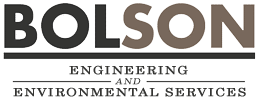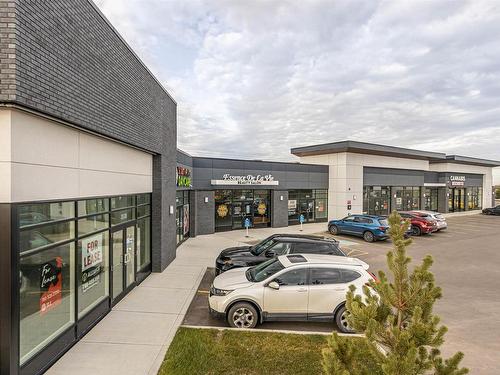The process of rezoning can be complex, with many factors to consider before a successful application can be submitted. Rezoning refers to the process of changing the zoning designation of a particular parcel of land, thereby altering what that land can be used for according to municipal land use bylaws. Whether you are a developer looking to embark on a new project or a business owner aiming to expand, understanding the intricacies of rezoning applications is crucial. This article will provide insights into the critical factors to take into account when preparing a rezoning application, ensuring you navigate the process with a well-informed strategy.
Understanding Zoning Laws
Before diving into a rezoning application, it's essential to grasp the fundamentals of zoning laws. These laws are developed by local governments to regulate land use within their jurisdiction. Municipalities classify areas based on various zoning districts, such as residential, commercial, industrial, or mixed-use, and determine what activities can take place within these zones.
The Purpose of Zoning Laws
Zoning laws serve multiple purposes, including:
- Protecting the public's health and safety
- Promoting orderly growth
- Separating incompatible land uses
- Preserving the value of property
- Guiding urban expansion and infrastructure development
Understanding the intent behind these laws will help you better align your rezoning application with the broader goals of the community.
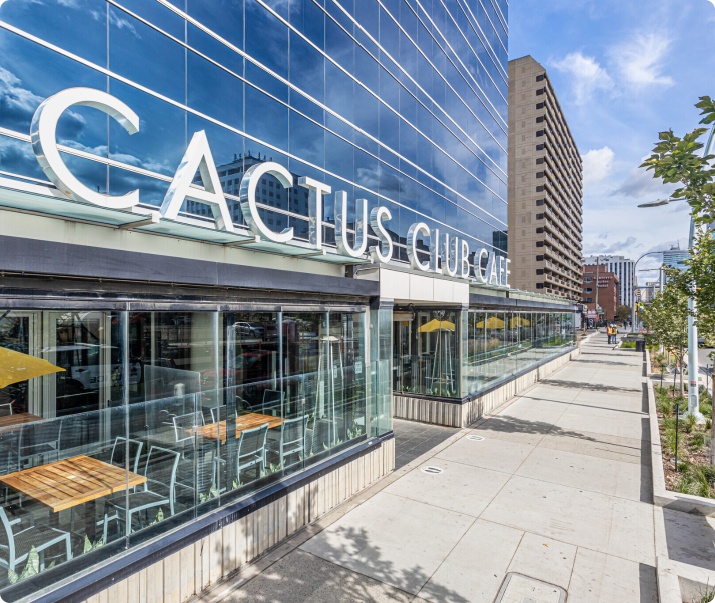
Cactus Club located Downtown, Edmonton
Analyzing the Existing Zoning Designation
Your property's current zoning designation is the starting point for any rezoning effort. You need to assess the existing conditions and restrictions that apply to your land. This includes permitted uses, density requirements, building heights, setbacks, and other development standards.
Researching Local Zoning Ordinances
Local zoning ordinances are public records. They outline the specific regulations for each zoning district. Familiarize yourself with these documents and consider how your proposed use compares to the current zoning designation. This will help identify any potential conflicts or areas where your application may need to provide justifications for the change.
Assessing Community Impact
Rezoning often impacts the community at large. As such, one of the most significant factors in the application process is how the proposed rezoning will affect the surrounding area.
Evaluating Compatibility with Neighboring Properties
Consider how the rezoned land will fit within the context of the neighborhood. Will the proposed use complement the existing uses? Or will it introduce elements that are out of character with the community's vision?
Addressing Traffic, Environmental, and Infrastructure Concerns
The increase in traffic, potential environmental hazards, and the strain on local infrastructure are critical concerns that need to be addressed in your rezoning application. Conducting impact studies and including plans to mitigate negative effects can strengthen your case.
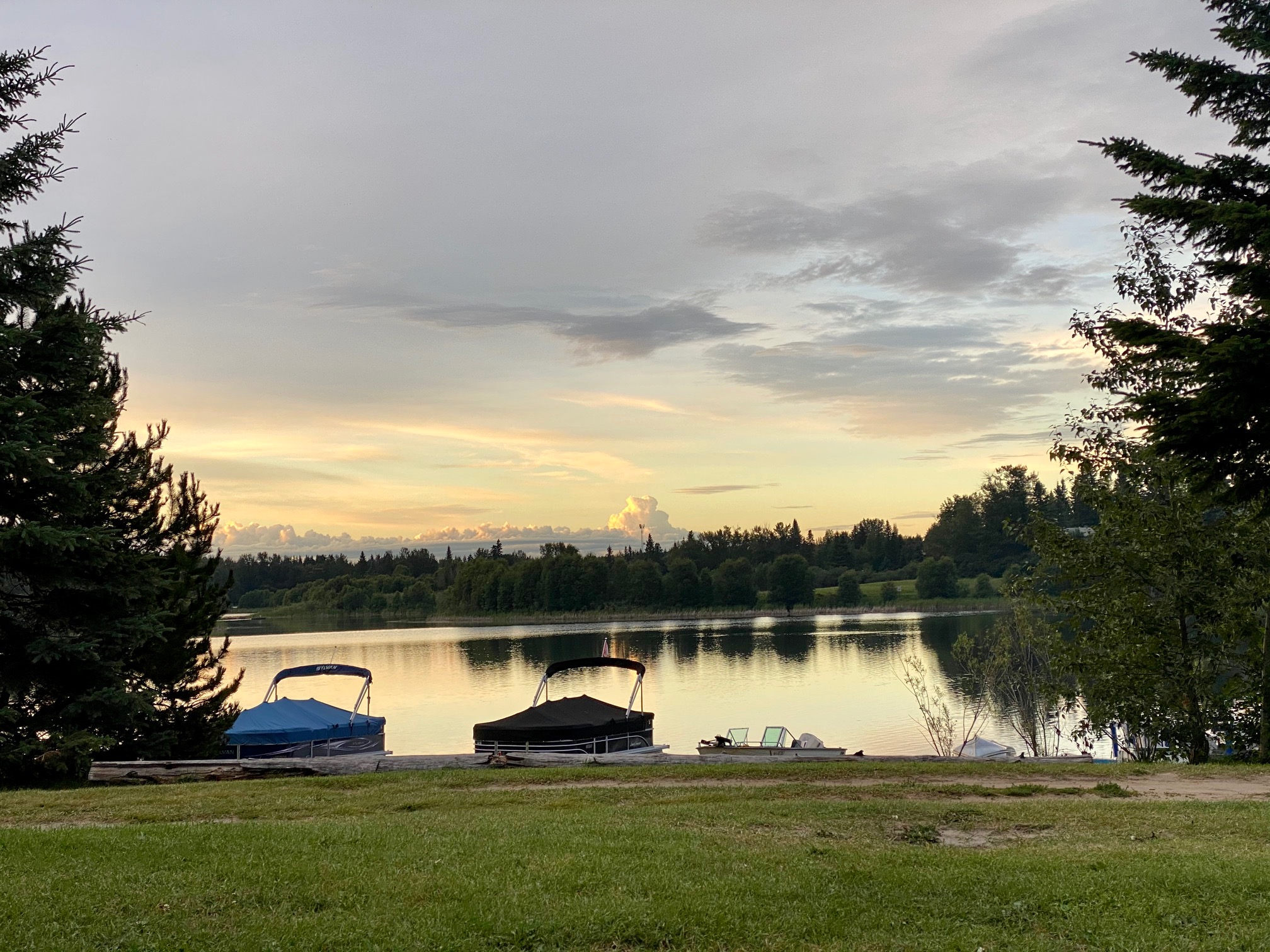
Spring Lake RV Resort located near Stony Plain, Alberta
Engaging with the Community
Community engagement is a pivotal aspect of the rezoning process. Residents and businesses in the area will have opinions on how your proposed rezoning could affect their lives and livelihoods.
Holding Public Meetings and Hearings
Public meetings and hearings offer a platform for you to present your plans and for community members to voice their support or opposition. Attend these meetings well-prepared to answer questions and provide clear, concise information about your proposal.
Gathering Support from Neighbors and Local Organizations
Garnering support from neighbors, local businesses, and organizations can significantly influence the decision-making process. Their endorsements can demonstrate to the zoning board or city council that your rezoning request has community backing.
Working with Professionals
The complexity of rezoning applications often necessitates the involvement of various professionals.
Hiring a Land Use Attorney
A land use attorney can guide you through the legal intricacies of the rezoning process, help prepare the necessary documentation, and represent you at public hearings.
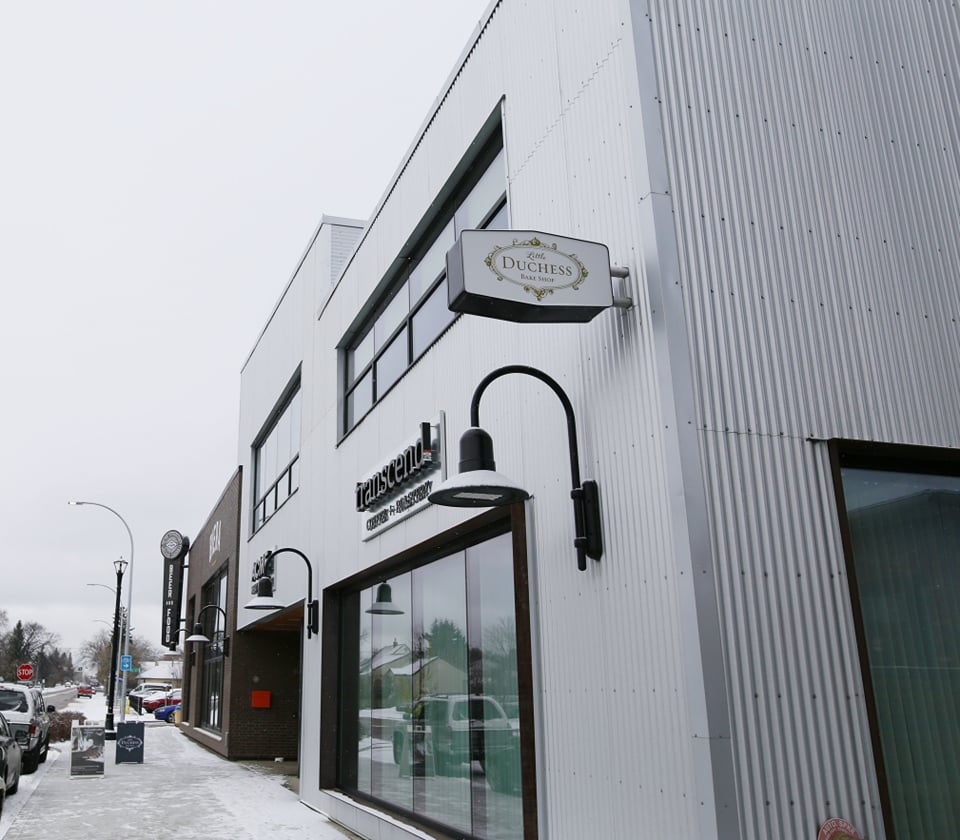
Ritchie Market in the Ritchie Neighborhood in Edmonton, Alberta.
Consulting with a Civil Engineer
Civil Engineers can assist in designing a project that aligns with local planning policies and zoning requirements. Their expertise can be invaluable in addressing any planning concerns raised during the application process.
Preparing a Comprehensive Rezoning Application
When it's time to prepare your application, attention to detail and thoroughness are key.
Developing a Detailed Site Plan
A detailed site plan should accompany your rezoning application. It will need to include the layout of the proposed development, building designs, landscaping, access points, and any other relevant site-specific details.
Including Impact Studies and Reports
As discussed earlier, impact studies and reports can provide data-driven insights into how your proposed rezoning will affect various aspects of the community, from traffic patterns to environmental concerns. These documents can substantiate the claims made in your application and demonstrate due diligence.
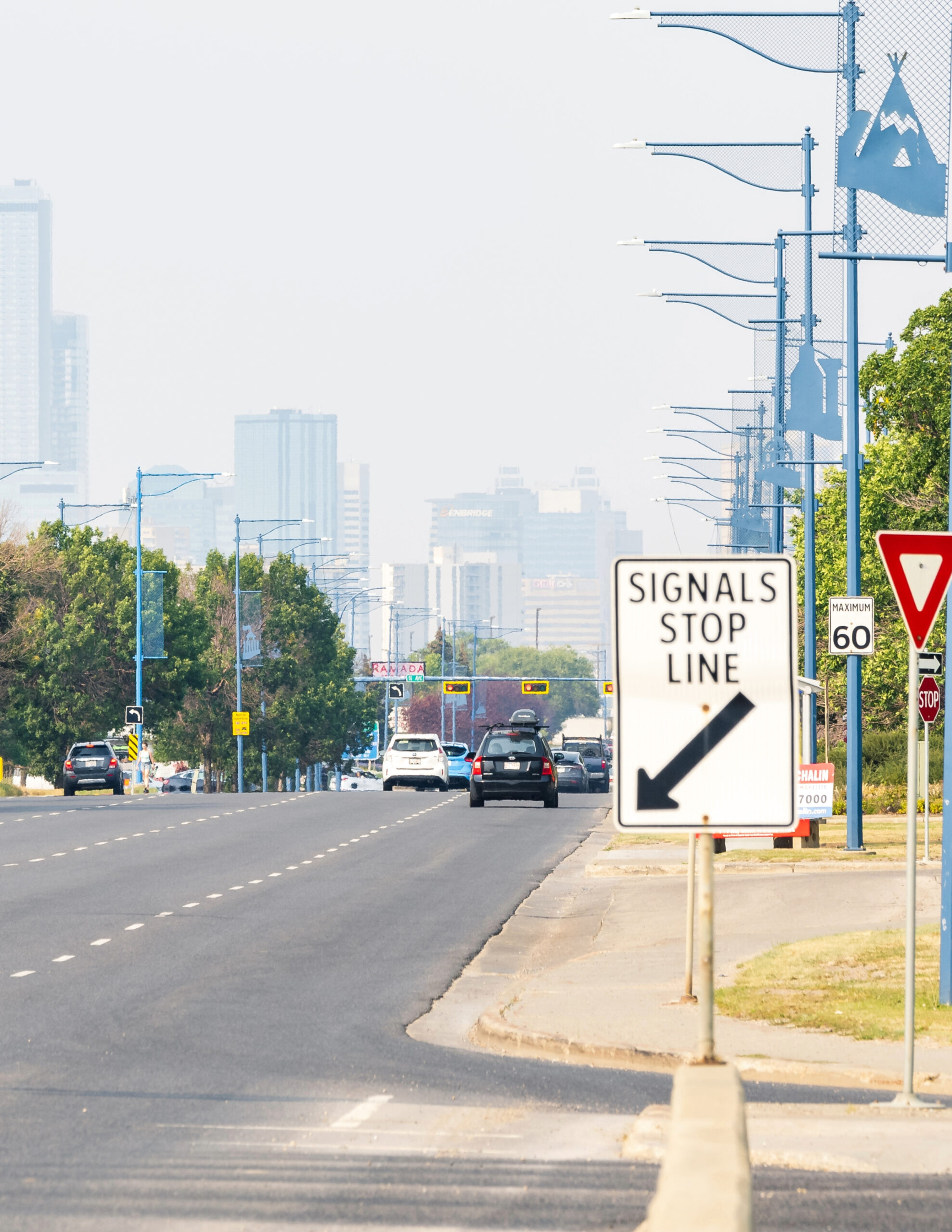
A Traffic Impact Study forecasts additional traffic associated with a proposed development and potential issues.
Navigating the Public Hearing Process
The public hearing is an essential step in the rezoning process. It is where the local governing body will consider your application and hear from the public.
Presenting a Compelling Case
In the public hearing, you must present a compelling case for why the rezoning should be approved. Be prepared to discuss your project in detail and explain how it aligns with the community's goals and planning policies.
Responding to Public Comments and Concerns
You should also be ready to respond to any comments or concerns raised by the public or the governing body. Listen attentively, address issues directly, and be willing to make reasonable compromises if necessary.
Considering the Long-Term Implications
Rezoning a property is not just about the immediate project at hand; it's also about the long-term implications for the land and community.
Impact on Future Land Use and Development
Think about how the rezoning might shape future land use and development patterns. Does it set a precedent for future rezoning requests? How does it fit within the broader vision for the area's growth?
Planning for Sustainable Growth
Ensure that your rezoning proposal considers principles of sustainable growth, such as minimizing environmental impact, encouraging walkability, and supporting public transportation options.
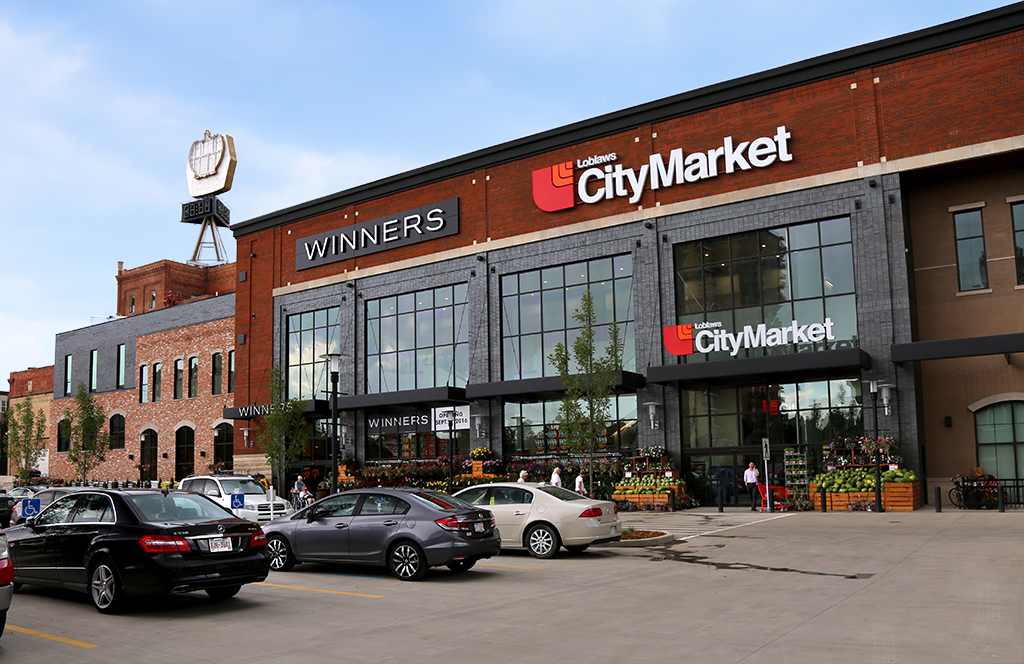
Edmonton Brewery District
The Path Forward
Rezoning applications require careful consideration of various factors, including understanding zoning laws, assessing community impact, engaging with the community, working with professionals, and preparing a comprehensive application. By thoroughly considering these elements and presenting a well-reasoned case, you can navigate the rezoning process successfully and contribute positively to the community's development.
Remember, the goal is not just to obtain approval but to ensure that the rezoning benefits both the property owner and the community for years to come. With a thoughtful approach and due diligence, you can achieve a rezoning outcome that is a win-win for all parties involved.
If you are looking for experienced civil engineering company to guide you through the rezoning process in Edmonton and across Alberta, be sure to engage with Bolson Engineering and Environmental Services. We will be happy to consult with you as your trusted engineering partner.
